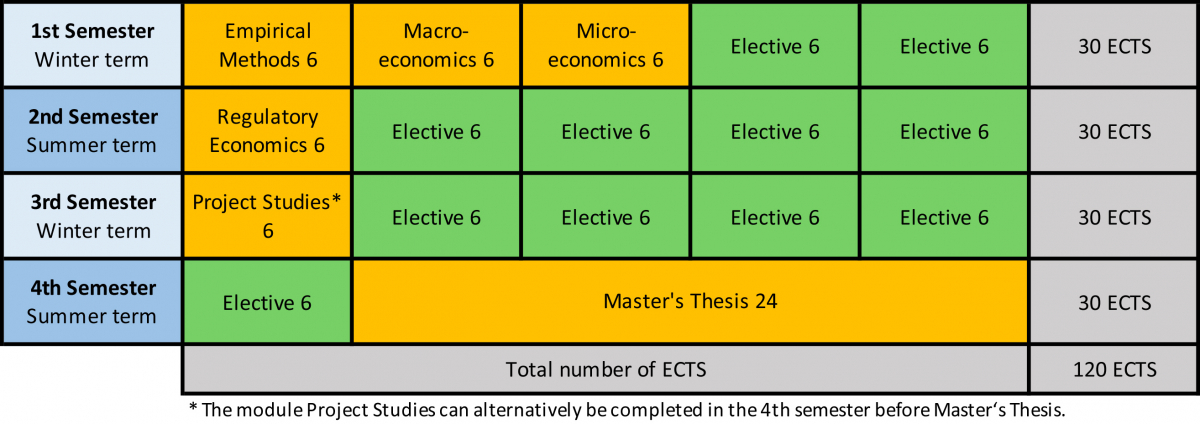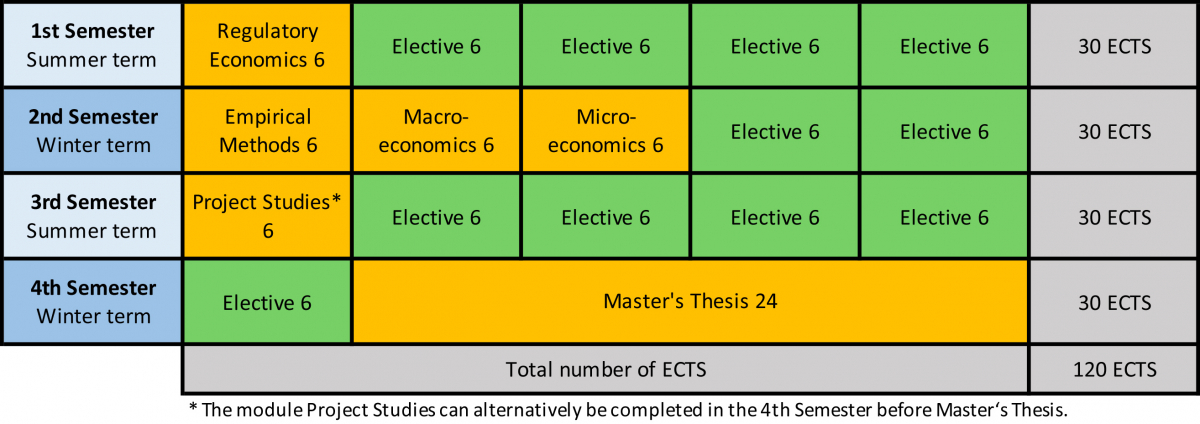General Remarks and Course Structure
General Remarks
The first three semesters are given over to lectures, seminars and tutorials. The third semester may be spent abroad. The fourth semester is reserved for project-centred learning and the MA thesis.
Traditional lectures are to a large extent replaced by seminars, project work, and an initiation to independent research. An excellent student-teacher ratio is guaranteed by the limited number of participants and the wide range of options on offer.
As the master’s programme is oriented towards research, it is essential that participants should have a sound knowledge of econometrics and an intimate acquaintance with the theoretical foundations of economics. The module devoted to project-centred learning enables students to gain hands-on experience of academic work. This experience is deepened and widened when they they get down to writing their theses without external assistance.
Course Structure
Study plan (begin in the winter term)
Study plan (begin in summer term)
Students who have enrolled for the master’s degree course in economics have to take five compulsory modules, each of which carries six credit points. The modules are as follows:
- Microeconomics (winter semester)
- Macroeconomics (winter semester)
- Regulatory Economics (winter semester)
- Empirical Methods (summer semester)
- Project Studies (every semester)
There are eleven additional compulsory elective modules, each of which carries six credit points, which you can freely choose from a large number of modules (51 compulsory elective modules). All the modules on offer are listed in the Module Guide Book. You can thus set strong personal priorities in your master's program. In addition to deepening modules about microeconomics and macroeconomics, you can select units of instruction devoted to domains such as the following:
- Energy and Environmental Economics
- Transport Economics
- Business Cooperation
- Econometrics and Statistics
- International Economics
- Regional Economics
- Sports Economics
- Public Economics
- Finance
- Industrial Organization
- Monetary Theory
- Politics
You have the possibility to form your own profile by choosing from various fields of specialization or by mixing them. You can find some exemplary course plans here.
The third semester can be spent abroad. Information about the semester abroad can be found here.
The project study module (6 ECTS) offers the opportunity to gain experience in practical scientific work. It prepares the students for an independent scientific work, such as the master's thesis (24 ECTS).
You will find further information about the master's program on the homepage of the School of Business and Economics as well as on the homepages of the institutes and chairs in the field of economics in Münster.




